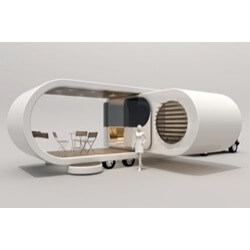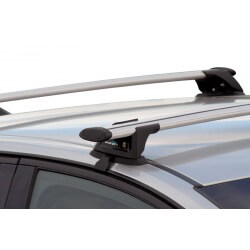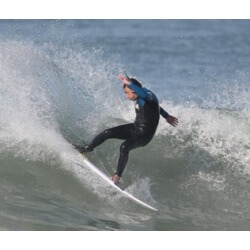Matt Wilkie and Stuart Winterbourn, founders of multi-disciplinary design consultancy W2, specialise in bringing fresh ideas and unexpected materials to client projects. In between designing exquisite residential and commercial spaces and conducting seismic assessments on Christchurch buildings, the pair kicked off another venture: to reinvent the common caravan. The ROMOTOW may well be the next frontier in mobile living – complete with a sheltered outdoor exterior and 70% more floor area resulting from an ingenious automated swivel.
In the last decade the motor caravan lifestyle has experienced a major surge in popularity. Market research in the United States shows the 90 recreational vehicle (RV) manufacturers generate a combined annual revenue of $10 billion (with caravanning also popular in the UK, Europe and Australia). Matt and Stuart saw that if their Romotow concept could take even a small piece of that global market, it was an opportunity worth pursuing.
As W2 began researching commercialisation strategies and building a business plan around their design, they had discussions with a number of experts – and became nervous that as more people learned about the design, the risk of intellectual property theft increased. A contact at New Zealand Trade and Enterprise suggested design and patent protection should be a key component of their plan, and recommended CreateIP.
“We didn’t know much about IP protection, and it was pretty daunting because patent documents seem to be written in another language”, said Stuart. “Robert was so relaxed at that initial meeting, he immediately put us at ease and all of our apprehension and preconceptions about legal meetings went out the window. Then he referred to us as ‘inventors’, confirming that we were starting on a totally new and exciting endeavour!”
When the team decided to pursue a licensing strategy for Romotow, it became clear that patenting would be absolutely essential to the process. Stuart explained, “The whole exercise would have been a waste of time if we didn’t protect the IP – no one would buy a licence without that in place. We didn’t have a big budget, but CreateIP gave us different options and ways that we could invest a bit more time and do some things ourselves to save money, that was incredibly helpful.”
With trade mark and patent protection in place on the ROMOTOW in New Zealand, the US, the EU, China and Australia, W2 has been free to unveil their concept to the world. The story has attracted considerable interest from all corners of the globe, with stories appearing in ‘Wired’, ‘Gizmag’, ‘The Examiner’ and on Radio New Zealand. The team is now in discussions with manufacturers to build a prototype.
Since collaborating on the ROMOTOW IP strategy, W2 have sought CreateIP’s advice on a number of other ideas as well, including a unique long-span suspension bridge design for the West Coast’s Old Ghost Road heritage cycle trail and a new idea for a building re-levelling technique emerging out of earthquake rebuild projects.




